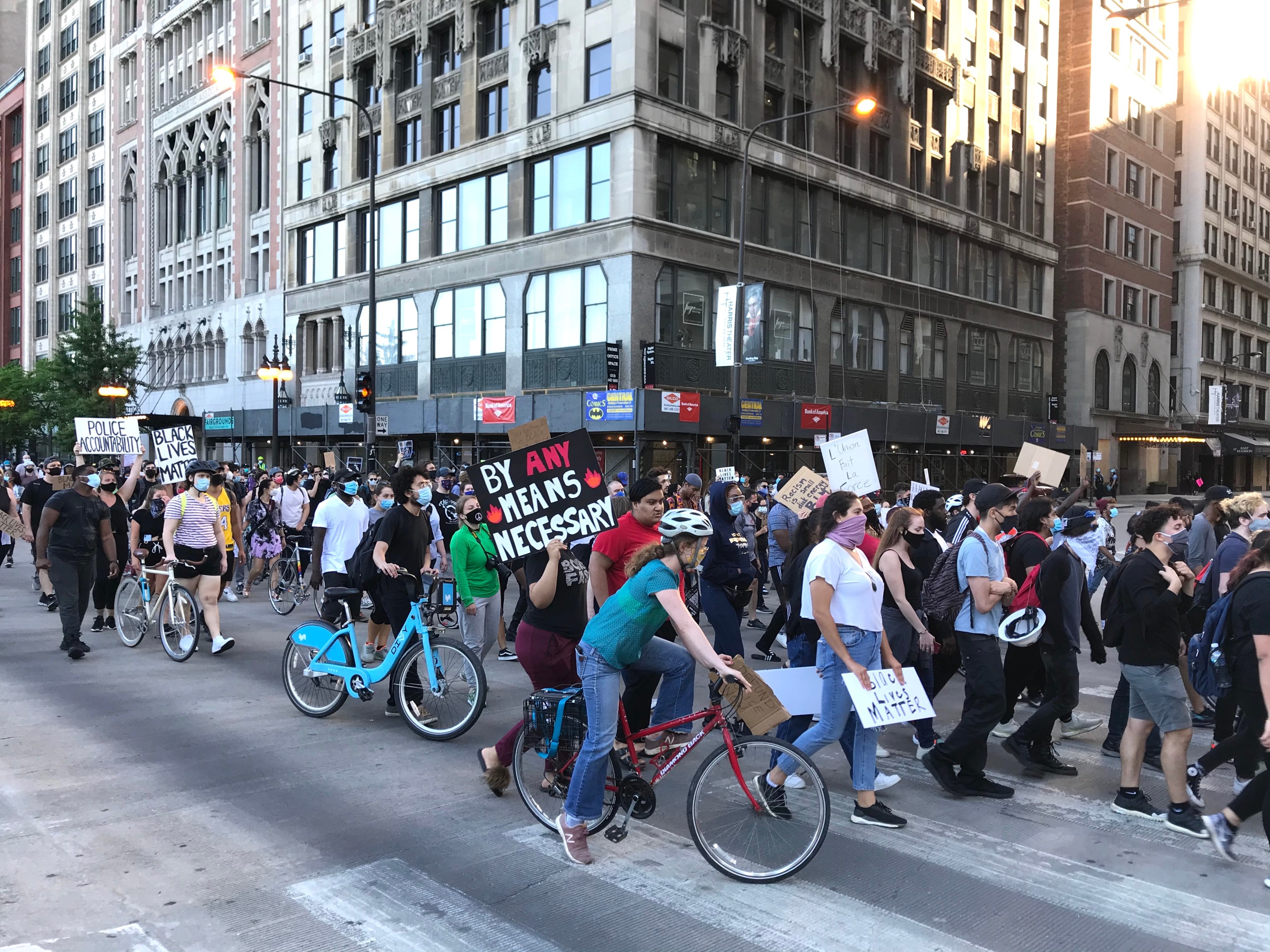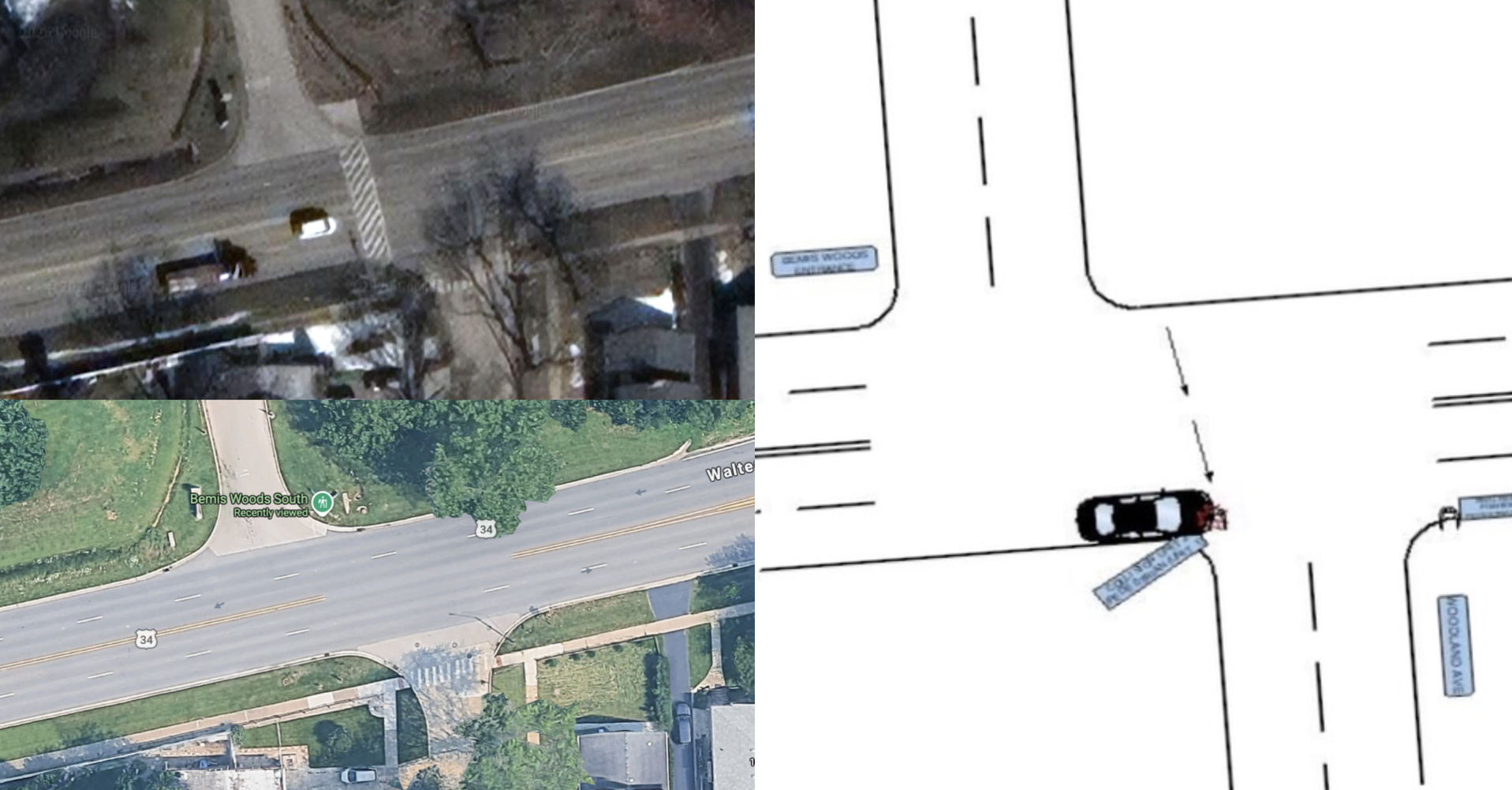A recent Crain's op-ed argued that, during the economic headwinds of the COVID-19 era, state funding for bike and pedestrian projects is "hard to justify." Thankfully, Chicago congressional representative are taking a different approach, urging the Illinois Department of Transportation to prioritize walking, biking, and transit projects in response to the pandemic, as well to keep an eye on racial and economic equity in the wake of the George Floyd protests.
Members of the Illinois House delegation, including representatives Mike Quigley, Danny Davis, Sean Casten, Bobby Rush, Bill Foster, Jan Schakowsky, Jesús “Chuy” Garcia, Raja Krishnamoorthi, Robin Kelly, and Bradley Schneider, recently sent a letter to Illinois Department of Transportation secretary Omer Osman asking for changes to the Rebuild Illinois capital program to adjust to the new reality.
The politicians noted that the coronavirus crisis has highlighted longstanding inequalities, including in transportation networks. The letter calls for IDOT to focus on addressing racial and social inequities while allocating recovery funding in order to avoid making these disparities worse. "Meeting these new challenges and ensuring that our transportation systems continue to work for all Illinoisans will require us all to work together to ensure investments that we make into our system moving forward are strategic and make the best possible use of limited funding across all modes of transport,” the letter stated.
“The state’s re-evaluation of the capital program should use transparent, data-driven methods to prioritize projects through a racial and environmental justice lens,” the reps also stated. "This includes deciding which projects to fast-track, which to delay, and which not to carry forward given the expectation of reduced resources.”
The politicians noted that the federal funding secured for Illinois transportation via the CARES Act won't be enough to meet longterm needs, so triage is necessary. While Illinois public transportation, particularly in Chicagoland, has seen massive ridership losses during Stay at Home, the reps pointed out that's it has been crucial for transporting essential workers. "In addition, biking and walking continue to be indispensable modes of transportation for many, especially as people try to avoid crowded trains and busses."
The elected officials also proposed taking steps to make state transportation planning more flexible and responsive, "given the dynamic nature of the pandemic and the impacts not yet known. An opportunity should be provided for new projects to be added that will quickly and directly improve safety, equity, health, economic opportunity and increase active transportation options to be added to IDOT’s plans."
The leaders called for fast-tracking current project and adding new ones that would be beneficial to equity, health, the environment, and the economy. Pandemic bus lanes, bikeways, and sidewalk expansions spring to mind as innovative initiatives that would make it easier for residents to social distance and reduce their chances of viral exposure while making trips. They added that IDOT needs to move "beyond a mindset that prioritizes the swift movement of cars and trucks above all other modes. Projects that make it safer and easier for Illinoisans to walk, bike, and ride transit should be elevated given the proven economic, health, sustainability, and equity benefits of these modes."
"Moreover, we must avoid the temptation to focus solely on projects with the most public visibility," i.e. big, shiny infrastructure that lends itself to ribbon-cuttings, the representatives wrote. "Less heralded work on the foundational, and at times unseen, pieces of our transportation infrastructure is necessary to achieve maximum return from all out infrastructure investments."
The politicians ended by expressing hope that there will be a public process for prioritizing the programs and projects in IDOT's Multiyear plan "so that taxpayers can more clearly identify how these limited funds are being invested for their benefit. Given the importance of our infrastructure investments to not only economic vitality but also to the health of our residents, we seek to be in dialogue with IDOT about progress on this topic." They promised to continue to lobby hard for more federal transportation relief funding for the state.
It's good to see that local congressional reps understand that these unprecedented times call for a new state transportation paradigm that emphasizes racial and economic justice, health, climate change goals, and space-efficient modes, rather than simply sticking to the inequitable, car-centric status quo. Let's hope IDOT gets the message.





